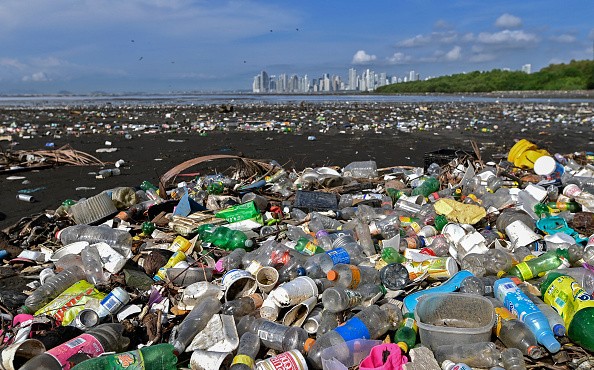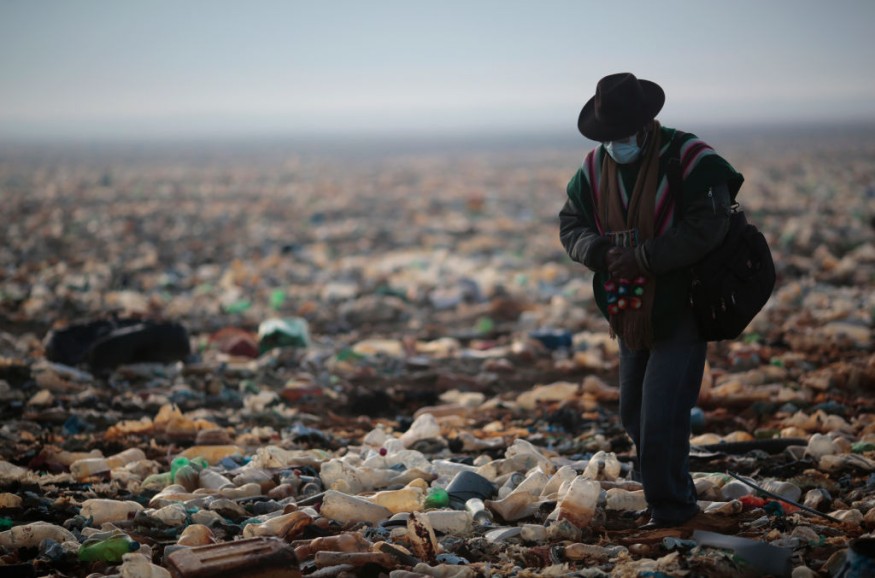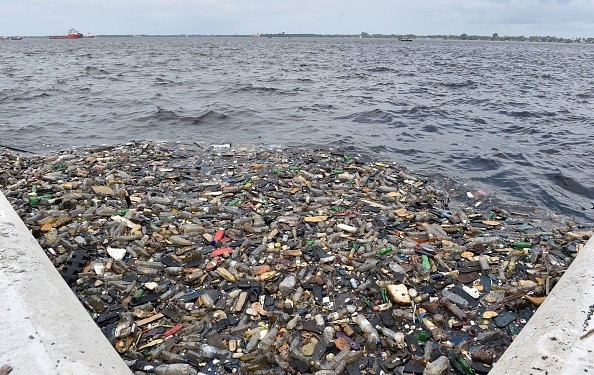World leaders will come together online and in Nairobi, Kenya, next week in what is described as a "critical moment" in progress towards the first-ever global treaty to combat plastic waste. Inger Andersen, head of the UN Environment Programme, said a deal at the UN environment assembly might be the most critical international pact since the Paris climate accord in 2015.

Public Outcry
Disgust and impatience with the growing mountain of plastic waste have prompted an unprecedented "degree of focus," she said, which could lead to member states agreeing on a blueprint for a legally binding treaty to regulate plastics "from source to sea."
"Public dissatisfaction is a powerful force," Andersen told the Guardian. "The public has had enough. We are all dependent on plastic, but they want to see some resolution of this issue."
The United States, which produces more plastic garbage per person than any other country, joined France in pushing for a worldwide accord that recognizes "the necessity of limiting [plastic waste] at its source" earlier this month.
Critical Goal

A vital goal of the fifth UN environment assembly, from 28 February to 2 March, is to thrash out broad terms for a global agreement on plastic pollution and form an intergovernmental negotiating committee (INC) to broker a final deal. The INC would then negotiate a final treaty to be signed if member states could agree on a framework.
Only 9 percent of plastic garbage is recycled. It is difficult to recycle, slow to decay, expensive and polluting to burn, and breaks down into tiny particles that enter the food chain and cause harm to animals. From the deep seafloor to the Arctic ice pack, microplastics are everywhere.
"The world is watching with anxiety but also with hope," Andersen told delegates on Wednesday, "because for the first time in history, we are seeing unprecedented global momentum to combat the plague of plastic pollution."
From the 1950s to today, we have produced around nine billion tonnes, and seven billion tonnes of that is waste," said Andersen.
Related Article : Single-Use Packaging Actually Increases Waste From Fresh Foods
Agreement
Suppose the UN disagrees on a pact to reduce the production and use of plastic. In that case, ocean plastic pollution could treble by 2050, and there would be significant ecological harm, according to a WWF analysis earlier this month.
Reducing plastic usage, derived from oil and gas, has ramifications for the climate and pollution levels, Andersen added.
"If we manage to land it [an agreement], it will be the largest thing we have done as a global society in a new international environment deal. This is the first time we've tackled this problem with such intensity. It's a watershed moment, and it's very crucial."
Negotiators in Nairobi are debating two major resolutions this week, one from Rwanda and Peru that targets the entire lifetime of plastics and supports more than 70 nations, including 27 from the EU. The other, led by Japan and endorsed by Cambodia, Palau, and Sri Lanka, focuses on waste management and is limited to marine litter.
More than 300 scientists and research organizations have written to the United Nations, urging all member states to accept the key elements of the stronger Rwanda-Peru resolution. Also calling for a deal are 90 business executives, including fast-moving consumer goods businesses major plastic garbage manufacturers.
Inclusive Agreement

Andersen wants the agreement to encompass the entire lifetime of plastic, not only marine litter, include monitoring and objectives, and have a financial component to assist impoverished nations that are less able to recycle.
"What's remarkable is that 90 CEOs have signed on to demand a legally enforceable pact." PepsiCo and Coca-Cola, as well as Procter & Gamble and Unilever, are among them. And then you wonder, 'Well, why?' Because [of] shareholders and customers, that's where the lever is. There are a lot of people who want to see it change."
For more environmental news, don't forget to follow Nature World News!
© 2026 NatureWorldNews.com All rights reserved. Do not reproduce without permission.





